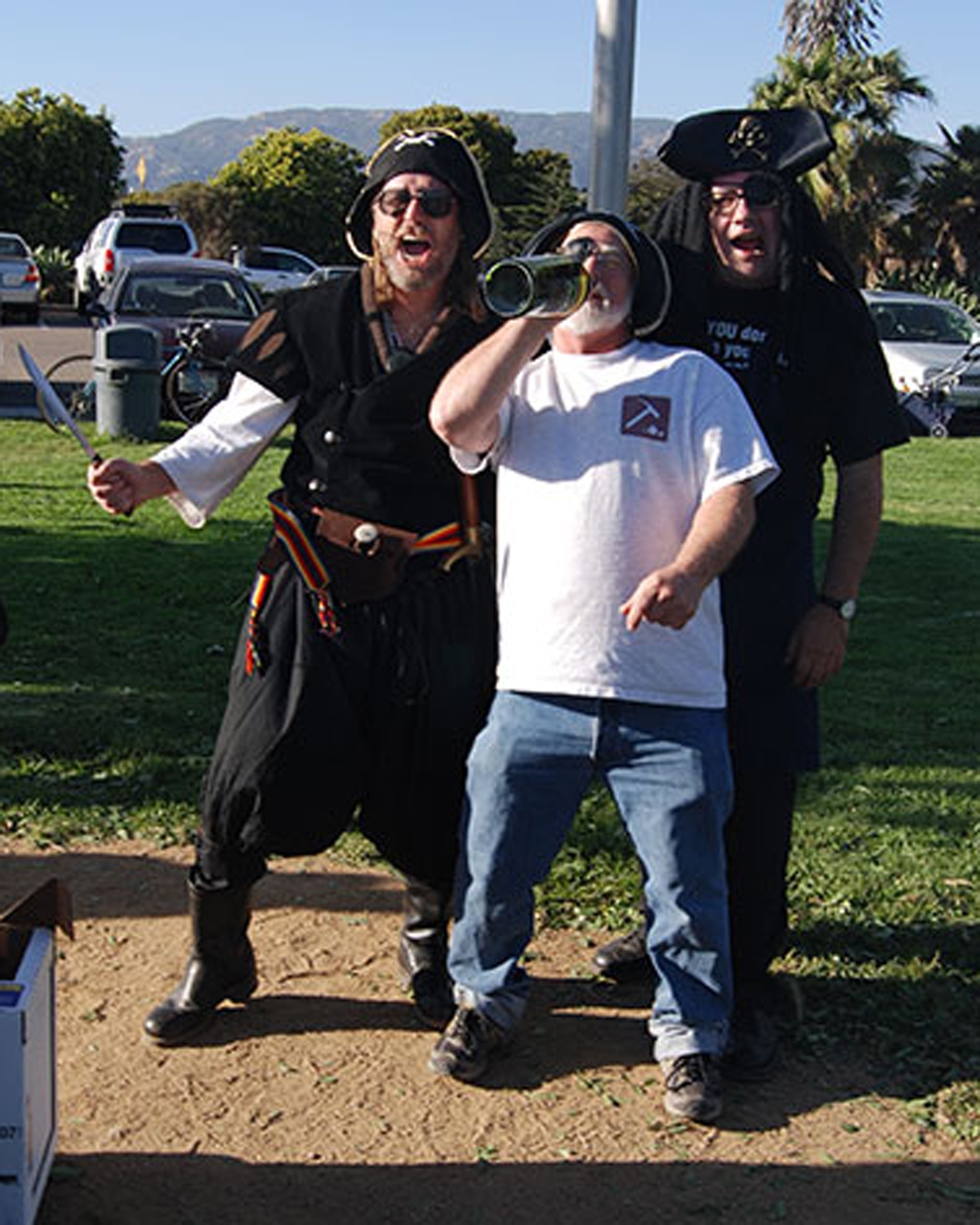Geography was one of seven disciplines represented at the (First Annual?) Zombie Debate, an event that took place May 13 at the University Center Hub. Sponsored by Associated Students, the event was something like a panel discussion by seven professors (and one graduate student playing the devil’s advocate) based on the premise that a zombie apocalypse had taken place and UCSB students were part of a surviving community. This community had only enough supplies to accept one more person, and that would be a faculty member from one of the represented disciplines. Modeled after the University of Montevallo’s Life Raft Debate (see http://www.liferaftdebate.com/), the event was intended to allow faculty to argue for the value of their respective disciplines in a post-apocalyptic world. By analogy, the debate could be seen as providing a chance for professors to justify higher education and their particular disciplinary specialties, in the face of threats like rising tuition, dwindling budgets, and widespread anti-intellectualism. Not quite a zombie apocalypse but pretty traumatic.
Besides geography, the debate featured 10-minute presentations from representatives of art history, education, film and media studies, mathematics, mechanical engineering, and philosophy. Geography was represented by Professor Dan Montello. He saw the premise as a little odd, given that the most critical knowledge and skills needed in a post-apocalyptic zombie world would not likely be academic knowledge. Farmers, builders, nurses, plumbers, tailors, and cooks anyone? Nonetheless, he played along and, in fact, naively thought the practical angle would seal the deal for geography.
Dan tried to capture the practical side of geography by titling his presentation “When Zombies Arrive, Geography Helps You Survive.” He was pretty confident he could make a strong case for the importance of geography, with its amazing breadth and multi-faceted real-world relevance. In a post-apocalyptic world, people would need clean air, water, food, and energy; shelter secure from animate and inanimate threats (zombies are sort of in the middle); affiliation with other people (friends, family, lovers); intellectual and emotional stimulation, and a sense of meaning and value. Dan proposed that geographic knowledge could help fulfill all of these needs.
Geography can be variously defined as “the study of Earth as the home of humanity” or, especially at UCSB, “the interdisciplinary study of human and natural structures and processes on Earth, organized spatio-temporally.” In other words, geography is not just knowing the capital of Burkino Faso (Ouagadougou) or hog production in Iowa (recently neck-and-neck in the U.S. with North Carolina). Textbooks in geography cover topics ranging from the movement of the sun and seasonality, spatial coordinate and measurement systems, mapping and information display, climate and weather, salt and fresh water, soil, landforms, the distributions of plants and animals, the distribution of ethnic groups and cultural practices, the distribution and development of all types of economic activities, transportation and communication, the origin and development of cities, and spatial and environmental beliefs and values. Thus, geography would help with such specific post-apocalyptic problems as finding potable water and edible food, defending the community from zombies and escaping if need be, and finding other groups of people with desirable social and cultural traits. In response to another professor’s dismissive remark about the uselessness of knowing where the sun is, Dan pointed out that knowing the position and movement of the sun would help you know about seasonality and daily sun cycles, house design, clothing needs, agricultural practices, water availability, navigation, visibility, and where your cat would likely hang out at different times of the day.
Dan concluded by warning the audience that if they did not choose geography, he would have no choice but to join the zombies and use his geographical knowledge to help the undead get every last audience member’s brain. He admonished them to think carefully before they voted—Which discipline, he asked, would they least like to hand over to the zombies?
The crowd was very lively and a good time seemed to be had by all (including a couple of what were presumably students dressed like zombies). The faculty members all seemed to enjoy themselves as well. Unfortunately, Dan did not have a funny song like the mathematician did, nor a zombie head-crushing tool like the mechanical engineer did. Nor, he admits, was he as interesting and funny as the philosopher, who in the end was voted to take the remaining community spot by the student audience. Dan was left to take his geographic knowledge and join the zombie cause. He should have informed the audience that he can cook.
Article contributed by Dan Montello







